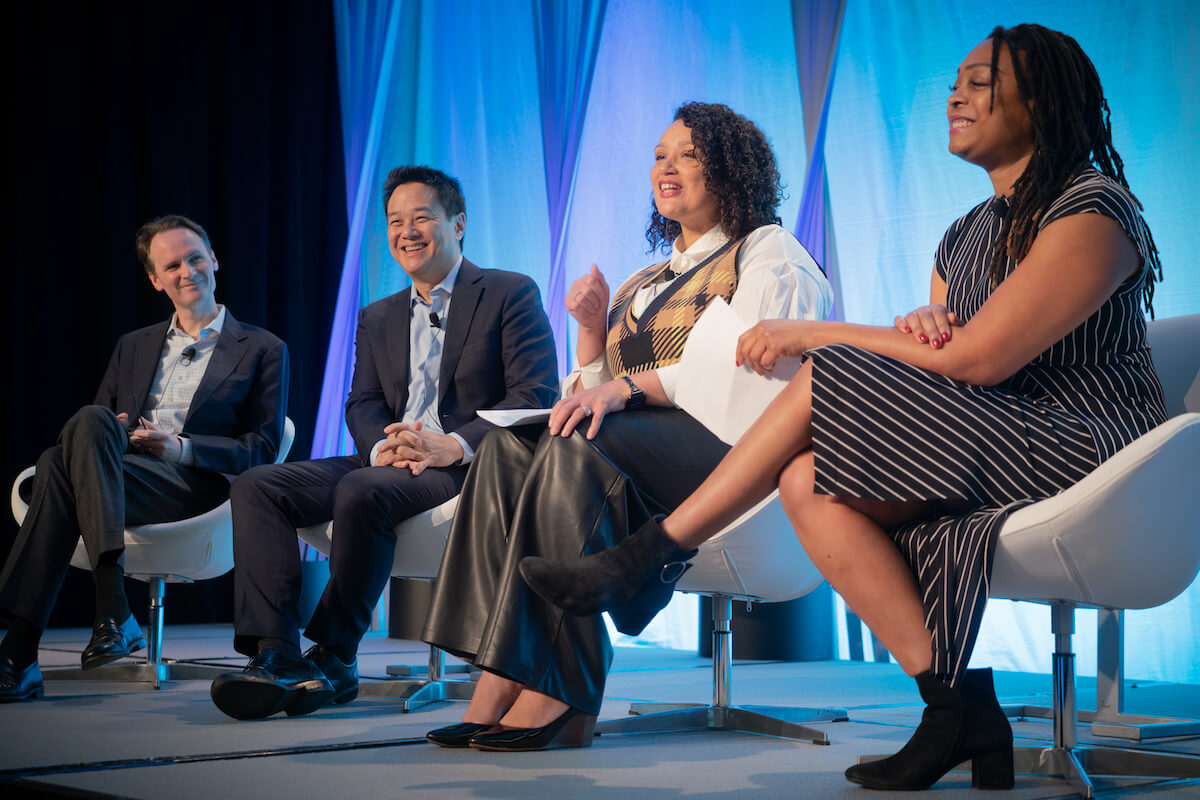Greetings, ImpactAlpha readers!
#Featured: ImpactAlpha Original
First ever ‘impact rating’ issued for a publicly traded mutual fund. Just as third-party ratings have become essential for judging financial risk of an investment, third-party verification of impact is essential if impact is to become a core component of investment decision-making. As large investment houses start to bring capital to bear on the world’s social and environmental challenges, analysts will be on guard for “impact-washing” — dilution of meaningful impact in the service of marketing.
Community Capital Management’s $2 billion CRA-Qualified Investment Fund got a “4-sun” rating, indicating “exceptional alignment of its impact mission, strategies, activities, and data that guide its investment programs and planning.” The fund says it has made investments in 383,000 affordable housing units, financed $336 million in enterprise development and job creation, capitalized 16,700 in home mortgages for low-to-moderate income borrowers.
The impact management rating comes from Aeris, which has been rating the financial strength and social impact of community development lenders since 2004. Other organizations, such as B Lab, rate privately held funds. But no such “impact rating” has been available for public mutual funds, which manage some $16 trillion in assets.“We’ve been looking for ways to guide capital to good,” said Paige Chapel, CEO of Aeris.
Read, “First-ever ‘impact rating’ issued for a publicly traded mutual fund,” by Oscar Perry Abello, on ImpactAlpha:
First-ever ‘impact rating’ issued for a publicly traded mutual fund
#Dealflow: Follow the Money
Tiedemann Wealth Management adds impact with acquisition of Threshold Group. The New York wealth advisor is touting Threshold’s impact investing bona fides. “Impact was clearly the driver,” CEO Michael Tiedemann told ImpactAlpha. “On day one, it brings us a capability we didn’t have, a domain expertise we didn’t have.” The arrangement combines Tiedemann’s $12 billion in assets under management with Threshold’s $3 billion. Threshold, founded by Seattle’s Russell family (of Russell 500 fame) has added impact investing talent in recent years; Stephanie Cohn Rupp, its managing director for impact, will head the practice at Tiedemann. Mike Tiedemann said wealthy clients have been asking for more impact opportunities. The firm’s advisors at first ranged from open to cynical. As the discussions progressed, “People said, how can we do this better?” he said. The acquisition is part of a continuing consolidation in the wealth management industry. “It’s tough to incubate impact credibility, so acquiring it makes sense,” said Matthew Weatherley-White, managing director of The Caprock Group, a wealth advisor with about $3 billion in assets. “It remains to be seen whether Tiedemann can integrate that impact culture without diluting it or corroding it.”
Kois Invest to move ahead with livelihood bond for Syrian refugees. The Brussels impact-investing firm aims to raise up to $30 million for employment assistance and entrepreneurship support to Syrian refugees in Jordan, Turkey, and Lebanon. Families fleeing the war-torn country account for one in five of the roughly 60 million displaced persons around the world. Backing for the bond comes from Convergence, a blended-finance platform that supported the feasibility study for the bond. Proceeds will fund up to a half-dozen organizations, and investors will get a return if certain outcomes are hit, such as good-paying jobs for students. Kois previously helped structure a $27.3 million war-zone rehabilitation bond with the Red Cross. Convergence, which now counts $2 billion in blended-finance deals, recently released a “State of Blended Finance” report that looked at trends across 187 deals.
See all of ImpactAlpha’s recent #dealflow. Send deal tips and news to [email protected].
#Signals: Ahead of the Curve
Amit Bouri looks ahead as `impact investing’ turns 10 (podcast). Among the big new things introduced in the year 2007 were the iPhone and Airbnb. Amit Bouri, CEO of the Global Impact Investing Network, is hoping that in time the year will also mark the beginning of a movement that will transform global finance: impact investing. Under different names, of course, the practice is much older. But the term itself dates to meetings at the Rockefeller Foundation’s Bellagio retreat center on Lake Como in Italy in 2007 and 2008. Ten years later, the field has grown to encompass more than $114 billion dollars of investment capital, according to the GIIN’s latest survey. “We have this exciting opportunity that we can actually have an impact on how investing is done,” Bouri told ImpactAlpha’s David Bank on the latest Returns on Investment podcast. Read, “Present at the Creation,” on ImpactAlpha, and listen in on the discussion between Bouri and Bank:
Present at the Creation: Amit Bouri looking ahead as `impact investing’ turns 10 (podcast)
Sugar-coating impact. Sustainable companies are making a move against thecocoa commodity market. Netherlands-base Tony’s Chocolonely was launched after investigative reporter Teun (Tony) van de Keuken uncovered rampant modern slavery and child labor in the West African cocoa industry. The brand, number one in the Netherlands, markets its chocolate as “100% slave-free” and pays its farmers in Ghana and the Ivory Coast 25% to 40% above market rate. “We outperform Mars,” says Chief Chocolate Officer Henk Jan Beltman. “It’s possible to take responsibility seriously and be commercially successful.” (And thanks, Tony’s, for the tasty samples at SOCAP.) Also at SOCAP, Uncommon Cacao is raising a $750,000, three-year convertible note. The cocoa supply-chain company serves 1,400 farmers in Colombia. In 2014, it was a guinea pig for a new kind of impact investment called “demand-dividend” — a flexible debt that allows borrowers to repay based on how much cash their businesses are taking in. Uncommon Cacao has since repaid that $200,000 investment.
#2030: Long-Termism
Closing the racial wealth gap. The U.S. is forecast to become a majority-minority nation by about 2044. Will the racial wealth gap be a chasm, or a relic of an earlier age? Wealth and other disparities along racial lines keep tens of millions from productively engaging in the economy.
Living Cities, long-known as testbed for financial innovations to improve the lives of low-income Americans, hopes to make the wealth disparity a thing of the past. With a shift in focus to racial equity, Living Cities aims “to highlight opportunities to enable families of color to build wealth,” Demetric Duckett of the firm’s capital innovation team told ImpactAlpha.
Why aren’t more people of color and women starting and growing more companies? One reason: “When people of color are younger, in school, they are told ‘Stay out of trouble, keep your head down,’” said Craig Vaughan, a managing partner at Vaughan Capital Advisors. “They aren’t set up to take risks.” Monique Woodard, who invests in Black and Latino entrepreneurs at 500 Startups, said the business case for inclusivity is stronger than the charity case. “I talk about demographic change,” she said. “I make the market argument. I talk about movers and drivers.”
Onward! Please send news and comments to [email protected].











